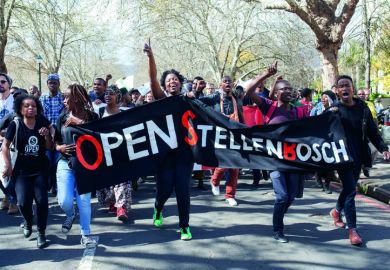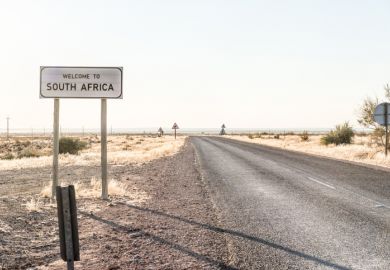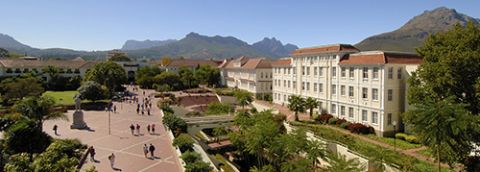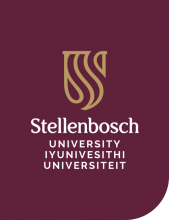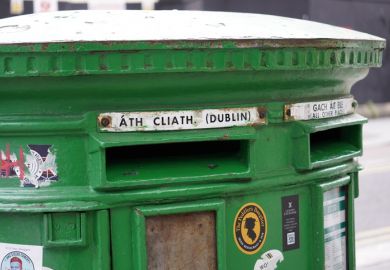Stellenbosch University’s multilingual approach has made the university more diverse, according to its vice-chancellor – although it has recently come under fire for infringing the rights of Afrikaans students.
The country’s opposition Democratic Alliance (DA) party lodged a complaint with the South African Human Rights Commission (SAHRC) after hearing allegations that certain residences at the historically Afrikaans-dominated institution had required first-year students to speak only English during the welcoming period in 2021.
Following an investigation, the SAHRC released its report earlier this month, which found that students’ rights to freedom of expression, language and culture, equality and human dignity were violated.
As a result, the DA intends to table an urgent motion of no confidence in vice-chancellor Wim de Villiers.
Speaking to Times Higher Education before the findings were announced, Professor de Villiers described the issue as an “emotive topic”, which was being used by political parties to attract votes ahead of next year’s general election.
Following a 2014 change in the country’s language policy, the university made all communications available in at least English – though this does not mean there are no classes in Afrikaans.
“Teaching in Afrikaans and simultaneously translating into English proved to be exclusionary and difficult in our quest to be a truly national university,” Professor de Villiers said.
“Instead of being very focused in the region and in a specific part of the population, this is a university that is a national asset – it needs to be accessible to everybody.”
This policy was expanded in 2021 with a new framework, meaning Stellenbosch now teaches in both Afrikaans and English, with an increasing emphasis on developing isiXhosa as an academic language.
The Bantu language of isiXhosa is one of the country’s 11 official languages, and one of the most frequently spoken in the Western Cape province, where Stellenbosch is located.
Professor de Villiers said the language policy had been a success at the academic level, but – referring to the allegations of a ban on Afrikaans in certain residences – admitted that some “emotional issues” had arisen in social spaces.
The SAHRC report found that a handful of residences had implemented English-only policies to promote inclusivity.
However, the policies resulted in the exclusion of other languages, and because Afrikaans students make up the vast majority of the non-English-speaking student body at Stellenbosch, such a policy was found to disproportionately affect them.
The commission found that “inclusivity at all costs led to exclusion in a manner that resulted in unfair discrimination”, and concluded that the university had unfairly violated the human rights of the affected students.
In a statement, Professor de Villiers apologised to those impacted, saying if there were students instructed not to use Afrikaans in a social context, “it is wrong” – although he said it was not the policy of the university, and that the institution is committed to an ongoing investigation and rectification process.
He said that Stellenbosch was disappointed by the incidents that came to light, and remains committed to advancing human rights, multilingualism and inclusiveness for all.
“I am on record as stating that Stellenbosch University’s multilingual journey is not easy,” he added.
“Mistakes are inevitable and we will learn from them towards charting a progressive multilingual and inclusive South African 21st-century university.”
Professor de Villiers told THE that encouraging multilingualism had resulted in a significant change in the diversity of the student body – from 65 per cent white when he started as vice-chancellor in 2015, to 50 per cent today.
And the institution had also become much more regionally diverse during his nine-year tenure.
“We’ve changed from being 70 per cent from the Western Cape to slightly less than 60 per cent from the Western Cape – with significant portions from Gauteng, which is Johannesburg and Pretoria, and KwaZulu-Natal.
“Our black [student numbers] have increased significantly and so has our diversity and with that you get all the benefits from the diversity and the richness of different cultures,” he said.
“We needed to work on our diversity, we needed to get away from this perception that we’re an insular, small-town university – that we’re actually a powerhouse university, aspiring to be Africa’s best in a couple of years.”
He said academics at the university – the second-highest ranked on the continent – were observing the “phenomenon of translanguaging”, with students adopting a pragmatic approach.
“You’ll find that students around campus will switch from English to Afrikaans, throw in a few IsiXhosa words within a single sentence, and become very comfortable doing that.”
POSTSCRIPT:
Print headline: ‘Stellenbosch must be accessible to all’
Register to continue
Why register?
- Registration is free and only takes a moment
- Once registered, you can read 3 articles a month
- Sign up for our newsletter
Subscribe
Or subscribe for unlimited access to:
- Unlimited access to news, views, insights & reviews
- Digital editions
- Digital access to THE’s university and college rankings analysis
Already registered or a current subscriber?

